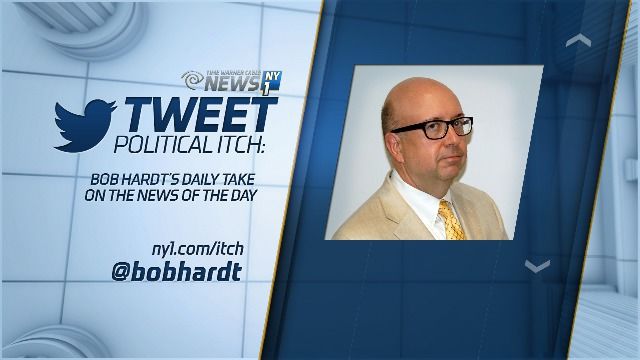In May of 1993, President Bill Clinton was traveling to New York with Senator Daniel Patrick Moynihan and Harold Ickes, a top White House aide and advisor. The question circling them on Air Force One was who Clinton should nominate to the Supreme Court to replace the retiring Byron White.
"It is not for me to say," Moynihan told Clinton, according to the late senator's letters.
"I asked," Clinton said.
"Ruth Bader Ginsburg," Moynihan replied.
"The women are against her," the president said.
Moynihan replied: "That is your problem, Mr. President. You have too many friends. You cannot govern without enemies."
Their conversation switched to the 1994 elections in which both Moynihan and Governor Mario Cuomo were up for re-election.
Looking at Moynihan's Marist Poll numbers, Ickes remarked that Moynihan's approval ratings were "astounding."
"Compared to Cuomo," Moynihan replied.
Clinton asked of the governor: "Can he run again?"
"Maybe," Ickes answered. "Big decline. Partly due to rhetoric, partly longevity."
Moynihan said Clinton believed it was more longevity.
The talk proved accurate. The following year, Moynihan went on to be re-elected for a fourth and final term against the little-known Bernadette Castro while Cuomo lost his bid for a fourth term to the equally-obscure George Pataki.
More than 20 years later, the longevity of both Moynihan and Cuomo's legacies are being shaped by the hands of Cuomo's son, Governor Andrew Cuomo.
A year after the late governor's death, Andrew Cuomo has dubbed his push for raising the state's minimum wage the "Mario Cuomo Campaign for Economic Justice." It's a fitting tribute to a man who spoke eloquently about the state's least fortunate.
But there's some irony that Cuomo seems to be taking away the naming of a project after Moynihan – the creation of a new rail hub at the old Farley Post Office building.
The project was close to Moynihan's heart. In several of his letters, he writes in detail of lobbying Clinton, Cuomo, and Pataki, to get the government money needed to create a new transportation gem.
In one of Moynihan's final published letters in 2002, the then-retired Senator writes of how he joined Pataki and Mayor Bloomberg at a press conference announcing the replacement of Penn Station, noting that his osteoarthritis kept him for standing for a group photo.
"I could not get back up. Whereupon the Governor jumped down to join me. The others followed. And The Times had a picture it could hardly not print."
Five months later, Moynihan died and the project took on his name. "Moynihan Station" is still prominently displayed on Amtrak's website and on press releases issued over the years by various state and local agencies.
So it was a bit surprising to see Moynihan's name largely missing from Cuomo's event yesterday in which he announced that he intends to put the Penn Station project back on track.
Cuomo's new name for the entire project – which would still move Amtrak to the Farley Building while renovating and keeping Penn Station – is the Empire Station Complex.
Sensitive to any questions that Moynihan is being shoved aside, the governor's spokesman,
Rich Azzopardi, pointed out that one of the slides in Cuomo's PowerPoint presentation mentioned Moynihan's role in the push for a new Penn Station.
But will it still be called Moynihan Station?
"Part of the Complex will be a Moynihan Train Hall," Azzopardi explained via e-mail.
While Cuomo surely wants to acknowledge the many changes to the plan, giving it a new name is an unnecessary one. Moynihan was a tireless advocate for New York and turning the Farley Building into a rail hub was one of his biggest battles later in his long career, which also included countless bits of good advice given to his colleagues, like telling Clinton that Ginsburg belongs on the High Court.
Bill Cunningham, a powerful political hand who served both Moynihan and Bloomberg, was disappointed that the Senator is getting quietly nudged out of the picture.
"He was not one for consolation prizes,'' Cunningham said of his old boss. "He never asked for the station to be named after him but I'm damn certain he would decline having a waiting room named in his honor."

Bob Hardt




